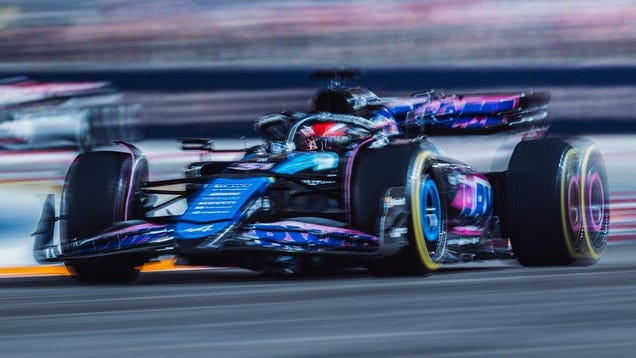Renault’s Enduring Legacy in Formula 1: A Historical Perspective
Renault’s journey in Formula 1 began in 1977, marking the start of a long and complex relationship with the sport. Over the decades, the brand has experienced a rollercoaster of triumphs and challenges, making it a significant player in the racing world. This article delves into Renault’s historical involvement in Formula 1, examining its contributions, setbacks, and the current state of its participation.
The Evolution of Renault in Formula 1
Renault’s initial foray into Formula 1 was marked by innovation, particularly with the introduction of turbocharged engines in the late 1970s. This technological advancement not only set Renault apart but also revolutionized the sport, influencing other teams to adopt similar strategies. The brand’s commitment to engineering excellence was evident as it quickly became a formidable competitor, securing its first victory in 1979 with the Renault RS10.
However, the road has not always been smooth. The early 1980s saw Renault withdraw from the sport due to financial difficulties and the complexities of maintaining a competitive edge. Despite this setback, the brand made a triumphant return in the late 1980s, achieving significant success with drivers like Alain Prost and Nelson Piquet. By the early 2000s, Renault had solidified its status as a powerhouse, clinching back-to-back Constructors’ Championships in 2005 and 2006.
The Transition to Alpine and Current Involvement
In 2021, Renault made a strategic decision to transfer its Formula 1 operations to its sub-brand, Alpine. This move was aimed at revitalizing the brand’s image and focusing on its performance-oriented identity. While some fans expressed concerns about this transition, it has allowed Renault to streamline its efforts and concentrate on developing competitive powertrains.
As of now, Renault continues to be a significant powertrain supplier, having provided engines to no fewer than 12 teams throughout its history. This ongoing involvement underscores Renault’s commitment to the sport, even as it navigates the complexities of modern racing dynamics. The brand’s engineering prowess remains evident, with its engines consistently performing well in various competitive scenarios.
Analyzing the Challenges and Opportunities Ahead
Despite its rich history, Renault faces several challenges in the current Formula 1 landscape. The sport has evolved dramatically, with increasing emphasis on hybrid technology and sustainability. This shift presents both challenges and opportunities for Renault, which has a strong background in electric vehicle technology. As the automotive industry pivots towards greener solutions, Renault’s expertise could position it favorably in the future of Formula 1.
Moreover, the competitive nature of the sport means that Renault must continually innovate to keep pace with rivals. Recent studies indicate that teams investing in advanced simulation technologies and data analytics are gaining a competitive edge. For Renault, leveraging its engineering capabilities and investing in cutting-edge technology will be crucial for future success.
The Role of Leadership and Vision in Renault’s Future
Leadership plays a pivotal role in shaping the future of any organization, and Renault is no exception. The brand’s decision to focus on Alpine reflects a strategic vision aimed at revitalizing its presence in Formula 1. Engaging with fans, fostering a strong team culture, and maintaining transparency in operations are essential components of this vision.
Furthermore, partnerships and collaborations within the industry can enhance Renault’s competitive stance. Collaborating with technology firms and leveraging shared knowledge can lead to innovative solutions that drive performance. As the sport continues to evolve, Renault’s ability to adapt and embrace change will be critical.
Renault’s Legacy: A Testament to Resilience and Innovation
Renault’s enduring presence in Formula 1 is a testament to its resilience and commitment to innovation. From its groundbreaking turbocharged engines to its recent strategic shift to Alpine, the brand has consistently demonstrated its ability to adapt to the ever-changing landscape of motorsport. As it looks to the future, Renault’s focus on sustainability, technological advancement, and strong leadership will be vital in navigating the challenges ahead.
In conclusion, Renault’s journey in Formula 1 is a rich tapestry of achievements and challenges that reflect the brand’s dedication to excellence. As it continues to evolve, the lessons learned from its past will undoubtedly inform its future endeavors, ensuring that Renault remains a key player in the world of motorsport.

